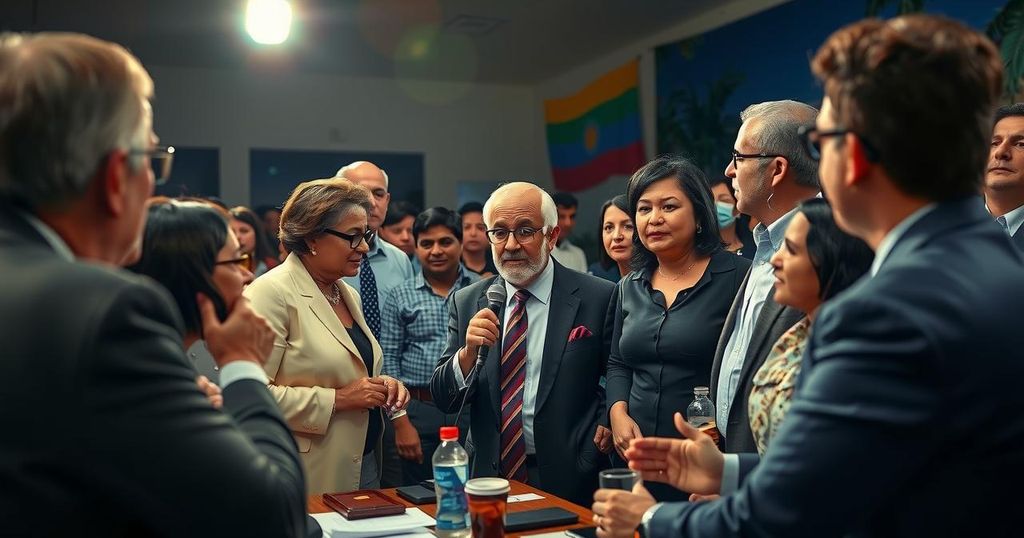Insight into Uruguay’s 2024 Presidential Election: Key Issues and Candidates
Uruguay’s presidential election is scheduled for Sunday, with key issues including crime, child poverty, and an aging population. Incumbent President Luis Lacalle Pou cannot run again, leading to a contest between his conservative coalition and a moderate leftist alliance. The outcome will influence trade relations with China and address major social challenges within the country.
Uruguay is set to conduct a presidential election on Sunday, amid a backdrop of political and economic stability that distinguishes it within Latin America. With a population of approximately 3.4 million, the Uruguayan electorate faces critical issues as they prepare to cast their votes. Crime rates, child poverty, and the implications of an aging demographic are at the forefront of voters’ concerns. The election will see incumbent president Luis Lacalle Pou, who is ineligible for re-election due to constitutional term limits, passing the baton to new candidates. The outcome of this election is pivotal; it will ascertain whether the conservative coalition maintains its hold on the presidency or if the moderate leftist alliance, known for its progressive policies such as the legalization of marijuana and an increased focus on green energy from its prior governance (2005-2020), will reclaim power. Should the opposition candidate, Yamandú Orsi, emerge victorious, the future of a significant trade deal with China may be jeopardized. Orsi has expressed his preference for negotiating with China within the framework of Mercosur, a regional trade bloc consisting of South American nations. In addition to the electoral competition, the newly elected leader will confront pressing societal challenges. Heightened concerns regarding violent crime, attributed to the infiltration of drug gangs, pose a serious threat to Uruguay’s traditionally peaceful image. Furthermore, a growing child poverty rate and the economic implications of an aging population are expected to be pressing topics for the new administration.
Uruguay, often celebrated for its stable political landscape and economic environment, is preparing to engage in a crucial electoral process. The departure of President Luis Lacalle Pou, due to term limits, poses significant questions about the future leadership and policy direction of the nation. This election is particularly noteworthy, as it reflects the nation’s civil political culture, where policy discussions take precedence over personal attacks, contrasting sharply with political climates seen in other nations, particularly the United States. Voter sentiment surrounding critical issues such as crime, poverty, and demographic shifts will significantly influence the election’s outcome.
As Uruguay approaches its 2024 presidential election, the stakes are high for both the conservative coalition currently in power and the leftist opposition seeking to regain influence. The electorate’s decision will not only shape domestic policies addressing urgent social challenges but also impact international relations, notably with respect to trade negotiations with China. The election process itself stands as a testament to Uruguay’s robust democratic values, setting an example amid a complex regional political landscape.
Original Source: www.nytimes.com




Post Comment